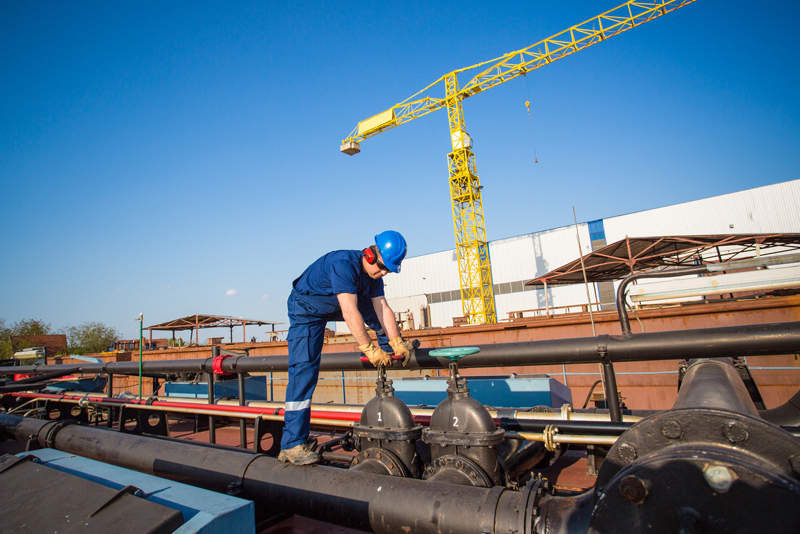According to OSHA (Occupational Safety and Health Administration), shipyards are high-risk working environments compared to that of other jobs – the accident and injury rate is more than twice compared to other working environments. Accidents caused by heavy equipment such as forklifts, cranes, conveyors, positioning equipment, storage equipment and pallet jacks; falls, toxic fumes, stress caused by heat, fires, and asbestos exposure are the common hazards associated with a shipyard. Shipyard accident lawyers who handle personal injury cases of injured shipyard workers work to secure due compensation for their clients. This would require medical records review to obtain the evidence required to prove the injury.
Discussed below are the most common hazards shipyard workers face, which need to be carefully considered.
- Challenging working conditions: Most jobs shipyard workers engage in could be hazardous and uncomfortable. Injuries can occur from working in highly cramped spaces and falls from a high point. According to OSHA, a confined space is one that is not designed for a worker to be working there, but is just large enough for certain jobs. These spaces that may have considerably narrow entry and exit points include vessels, vaults, tunnels, pits, storage bins, tanks, manholes, equipment housing, pipelines, ductwork and so on. These areas may contain exposed live wires and unsupervised machinery. Injuries range from physical injuries to the head, limbs and other body parts to suffocation and asphyxiation. High pressure in cramped and tiny work spaces could also lead to serious and permanent injuries such as eardrum rupture.
- Danger from machinery: Workers have to use heavy, huge machinery and considerable strength and skill are vital to handle these. Unless the worker is extremely careful when working with such machinery, serious injuries and even fatality could occur. Forklift accidents are very common, which lead to hundreds of thousands of injuries every year, involving both operators and bystanders.
- Slips and falls: Slips and falls are another hazard associated with shipyards, especially in locations where the weather conditions are extreme. Oil, water, and other fluid spills could prove highly risky. A slip and fall could even lead to falling into ice-cold water or even between ships. Common injuries include multiple fractures, trauma, head injuries, and amputations.
- No fixed timings: Shipyard workers have to work round the clock and the time schedules can be very erratic. This adds to the discomfort and risks associated with the job. Employees are often required to work without any rest.
- Toxic metals and dangerous chemicals: Shipyard employees are at constant risk of exposure to hazardous chemicals that are transported on ships. If the containers are not accurately labeled, or if they are damaged, workers could be exposed to such chemicals. Similarly, toxic heavy metals such as Cadmium, Beryllium, Arsenic, Lead, Mercury, and Hexavalent Chromium also pose considerable risk to workers if exposed to these. OSHA recently published a final rule revising the beryllium standards for shipyards and the construction sector. The final rule requires employers in the construction and shipyard sectors to establish, implement and maintain written beryllium exposure control plans. These should include jobs and operations that are reasonably expected to involve beryllium exposure, work practice, engineering controls, and need respiratory protection, and a list of personal protective clothing and equipment required. OSHA requires construction standards to now include procedures to restrict access to work areas that carry the risk of beryllium exposure. The final rule will come into effect on September 30, 2020. It is expected to affect around 12,000 workers employed in shipyard and construction industries.
- Fires and explosions: The possibility of fires, short circuits, explosions and electric shocks is significantly high in shipyards. So, shipyard employees and employers need to be warned against this possibility.
- Hazards from common work practices: Shipyard workers could be injured from common activities such as cutting, welding and brazing. They could be exposed to UV radiation and metal fumes. Hazards include cuts, electrical shock, eye damage and burns among others.
- Risk posed by asbestos: Asbestos exposure is very likely in a shipyard because even today asbestos is used as one of the construction materials for ships. Such exposure could result in diseases like mesothelioma and asbestosis. The symptoms caused by asbestos exposure could appear even after many years, even decades. This makes it a very serious health hazard.
- Lack of awareness: Most shipyard workers are not knowledgeable regarding the safety measures and laws that are meant to protect them. These include laws that enable them to request suitable work conditions, or seek compensation in case of a serious injury, or obtain basic information regarding exposure to hazardous substances such as asbestos.
Shipyard workers and their employers must therefore take special care to avoid injuries and illnesses associated with the shipyard environment and job nature. Employees must be given proper training on how the equipment they handle works, and asked to use their protective gear without fail. In case of an injury or illness, shipyard employees can always seek proper legal counsel from an attorney. With the support of an experienced provider of medical record review company, an attorney would gather all relevant medical records and review them to find the required medical evidence. Attorneys typically work with employers and insurance companies to obtain a fair settlement for their clients, or file a lawsuit if negotiation attempts fail.




